Trinity School Croydon is a leading independent boy's school with an exceptional co-educational Sixth Form.
Trinity is committed to providing a world-class education that nurtures well-rounded individuals. The school offers a broad and balanced curriculum, coupled with a wide range of co-curricular activities, to ensure students develop their academic, sporting, and artistic talents.
Trinity's focus on character development and strong values ensures that its students are not only academically successful but also compassionate, responsible, and confident individuals,
well-prepared for the challenges and opportunities of the 21st century.
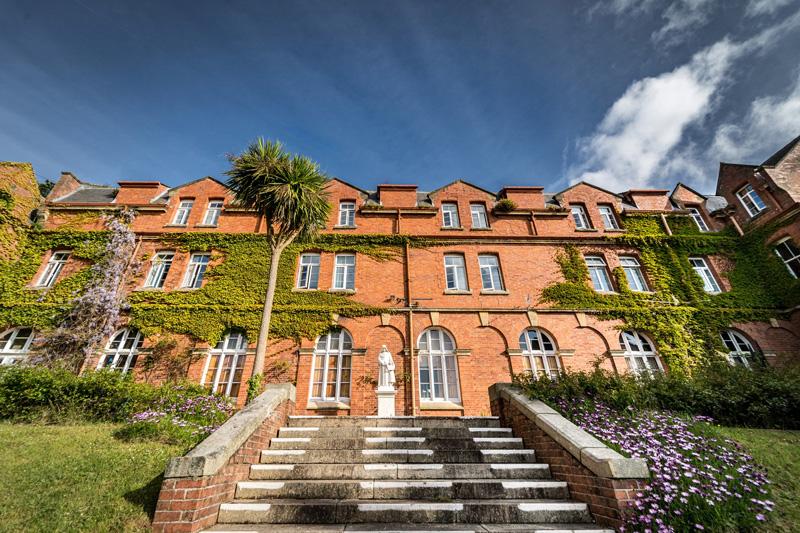
History of Trinity School
Trinity School, nestled within the heart of Croydon, traces its roots back to the 16th century.
It stands as a proud member of the John Whitgift Foundation, an institution dedicated to serving the local community since its establishment in 1596 by Archbishop John Whitgift.
Under the patronage of Queen Elizabeth I, the foundation stones were laid for both the Hospital of the Holy Trinity and a neighboring school.
The legacy of Archbishop Whitgift extended into the 19th century with the founding of Whitgift Middle School.
By the early 20th century, the decision to establish two separate schools—Whitgift School and Whitgift Middle School—was made.
William Ingrams, the first headmaster of Whitgift Middle School, ensured affordability for students from all walks of life.
In 1954, Oliver Berthoud renamed the school to Trinity School of John Whitgift. The school's relocation to the Shirley Park Hotel site in 1965 marked a new chapter in its history.
Since then, Trinity School has blossomed into the thriving, dynamic, and inspiring educational institution it is today.
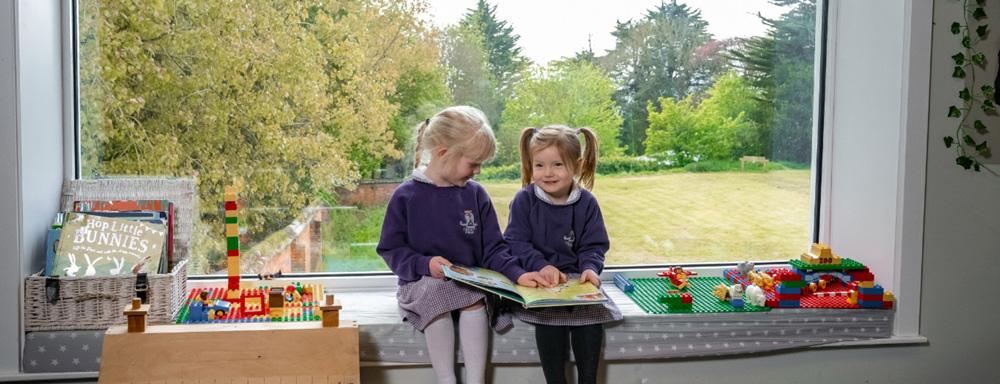
Education at Trinity School
Trinity School at Croydon is committed to fostering a love of learning and academic excellence.
Their educational philosophy is centered around:
- Individualized Learning: Recognizing the unique needs and abilities of each student, the school provides tailored support to help them reach their full potential.
- Intellectual Curiosity: Encouraging students to ask questions, explore new ideas, and think critically.
- Academic Rigor: Maintaining high academic standards while fostering a supportive and nurturing learning environment.
- Well-Rounded Development: Balancing academic pursuits with co-curricular activities to develop students' social, emotional, and physical skills.
Key Stages of Education
Junior Year (Year 6)
The Junior Year provides a smooth transition from primary to secondary education. Students are introduced to a broad curriculum, including language learning, humanities, sciences, and creative arts. The focus is on developing essential skills, such as critical thinking, problem-solving, and effective communication.
Lower and Middle School (Years 7-9)
In the Lower and Middle School, students continue to explore a wide range of subjects, including English, Mathematics, Science, History, Geography, Languages, and the Arts. As students progress, they have the opportunity to specialize in certain areas, such as choosing additional languages or opting for specific creative subjects.
GCSE (Years 10-11)
Students typically study a core curriculum of English Language, English Literature, Mathematics, and Science. They also choose additional subjects from a range of options, including Humanities, Languages, and Creative Arts.
Sixth Form
The Sixth Form offers a diverse range of A-Level courses, allowing students to pursue their academic interests and prepare for higher education or future careers. In addition to their
A-Level studies, students participate in the Trinity Diploma program, which involves independent research projects and the development of essential skills such as critical thinking, problem-solving, and time management.
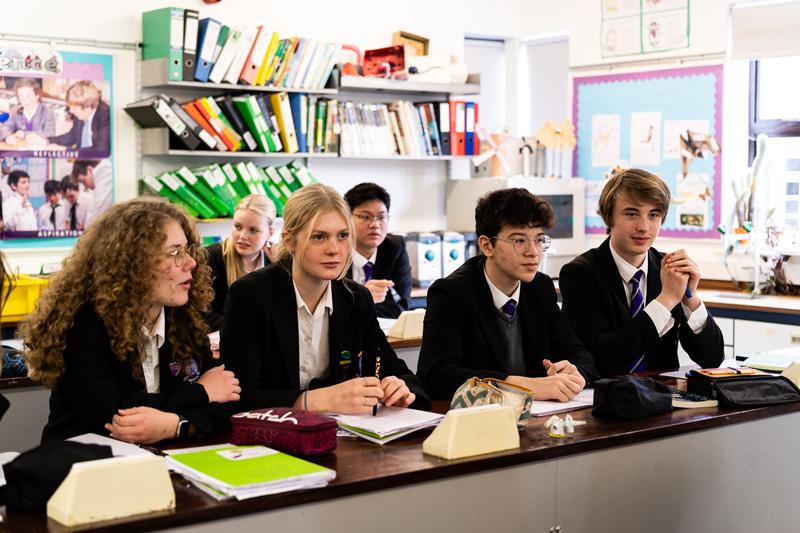
The Trinity Diploma
The Trinity Diploma is a unique program designed to enhance students' learning experience beyond the traditional A-Level curriculum. It encourages students to:
- Undertake Independent Research: Students can choose a topic of interest and conduct in-depth research.
- Develop Essential Skills: The program fosters skills such as critical thinking problem-solving, time management, and presentation skills.
- Gain Real-World Experience: Students may have the opportunity to apply their learning through internships, work experience, or community projects.
By providing a holistic education that combines academic rigor with personal development, Trinity School at Croydon aims to equip its students with the knowledge, skills, and confidence to succeed in their future endeavors.
Trinity School: A Day School
Trinity School in Croydon is a day school and does not offer boarding. It focuses on providing a high-quality day school experience for boys aged 10-18 in addition to girls in Sixth Form.
Facilities
Trinity School at Croydon Facilities
Trinity School offers a variety of facilities for students, the local community, and external hire. Here's a breakdown of the key offerings:
Sports Facilities
- Trinity Sports Club: This on-site club boasts a 25-meter swimming pool, fitness suite, two large sports halls, and several squash courts. Memberships are available for individuals, families, young persons, and seniors.
- Additional Sports Facilities: The school also offers facilities for hire, including five cricket nets, five badminton courts, two netball courts, two 5-a-side football pitches, two basketball courts, and a korfball court.
Swimming Lessons
- Intensive swimming lessons are offered during school holidays for both children and adults. Class sizes are small, ensuring personalized attention.
The Boetius Centre
- This self-catering accommodation located in the Brecon Beacons is available for hire by schools, groups, or families. It features a total capacity of 61 guests with en-suite bedrooms, a self-catering kitchen, living room, dining room, and storage for outdoor equipment.
Other Facilities
- The Mitre Theatre: This 120-seater theater includes a cafe area in the foyer and can be used for performances or events.
- Large Grounds: The school sits on 27 acres, including astroturf pitches, tennis courts, and netball courts.
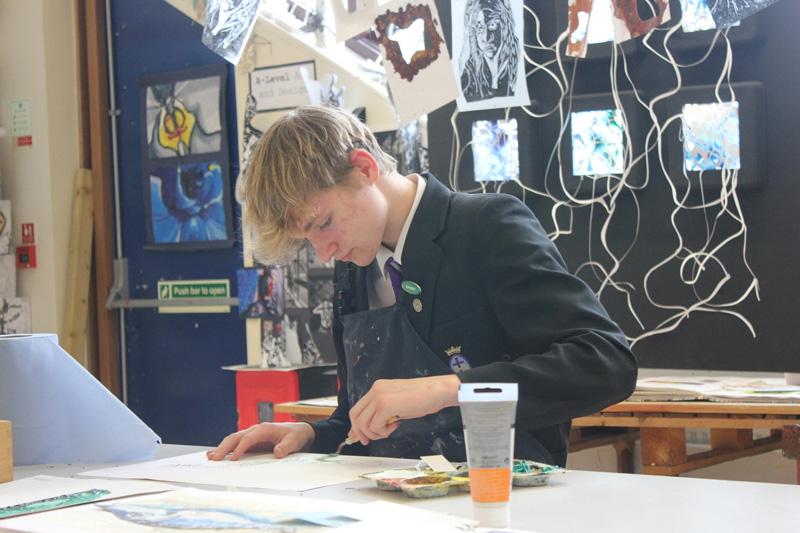
Application Process
Understanding the Admissions Process at Trinity School at Croydon
10+, 11+, 13+ Entries
- Application and Registration: Parents must register their interest for a specific year of entry.
- Entrance Examination: Students will typically sit a combination of computer-based and written assessments to assess their academic abilities.
- Academic Interview: Successful candidates will be invited to an interview to discuss their interests and potential.
Sixth Form Entry
- Application and Registration: Parents must register their interest.
- Academic Requirements: Students must meet specific GCSE grade requirements and subject prerequisites.
- Entrance Examination: Students may be required to sit entrance exams, depending on their chosen subjects.
- Academic Interview: Successful candidates will be invited to an interview to discuss their ambitions, interests, and suitability for the Sixth Form.
Fees at Trinity School at Croydon
School Fees
The annual school fee for the 2024-2025 academic year is £24,500, excluding VAT and other applicable taxes. This fee covers tuition and most curricular activities.
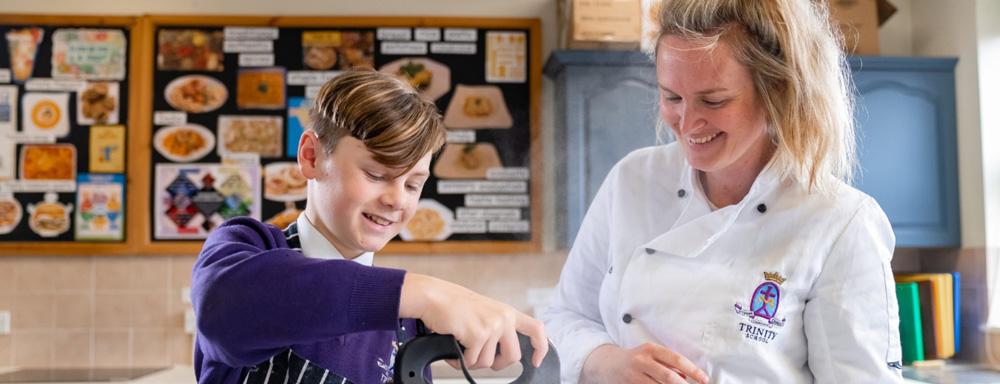
However, additional costs may apply for:
- Lunches
- Uniform
- Sports and PE Kit
- External Examination Fees
- Individual Music and LAMDA Tuition
- Certain Non-Academic Trips
Fee Increases
Due to changes in government regulations, including the introduction of VAT on school fees and the loss of Charitable Business Rate Relief, the school will be implementing fee increases:
- January 2025: A 10% increase will be applied to the existing fee.
- September 2025: An additional 6% increase, along with an inflationary adjustment, will be implemented.
Additional Fees
Upon accepting a place at Trinity School, parents are required to pay a non-refundable deposit of £2,000.
£1,000 of this deposit is a donation to the Trinity Bursary Fund, while the remaining £1,000 is held as a deposit until the student leaves the school.